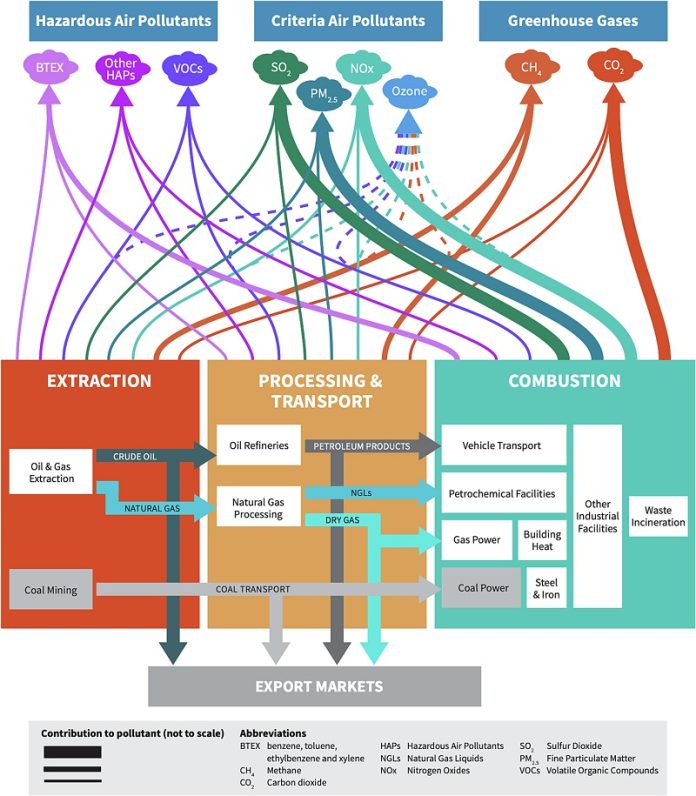
A recent study has revealed a troubling link between living close to oil and gas wells and higher COVID-19 death rates.
Researchers found that areas near these wells experienced significantly more severe impacts during the early months of the pandemic.
From December 2019 to May 2022, the COVID-19 pandemic led to over 82 million reported cases and nearly 1 million deaths in the United States.
Some communities were hit harder than others, particularly those facing economic challenges or historical racial discrimination.
Many of these neighborhoods are also located near oil and gas wells, which can pollute the air, water, soil, and even cause noise and light disturbances.
Scientists have long known that pollution can harm health, leading to conditions like asthma, heart disease, and weakened immune systems.
Previous studies have also shown that air pollution increases the risk of severe COVID-19 outcomes.
However, this study, led by Timothy Archer and colleagues, is the first to specifically look at how living close to oil and gas wells might affect COVID-19 cases and deaths.
The research focused on California communities located within 6.2 miles (10 kilometers) of active oil and gas wells.
Using data from February 2020 to January 2021, the researchers examined COVID-19 case and death rates, census information, and details about oil and gas production in these areas.
The findings were alarming:
- In communities within 0.6 miles (1 kilometer) of actively producing wells, COVID-19 cases were 34% higher and death rates were 55% higher during the first four months of the pandemic.
- Over the entire year, areas with the highest levels of oil and gas production saw significantly higher COVID-19 death rates.
While the study didn’t find a strong connection between oil and gas well activity and COVID-19 cases for the whole year, the sharp increase in deaths in certain areas highlights the potential dangers of living near these sites.
This study adds to growing evidence that pollution from oil and gas wells can worsen health outcomes, including during pandemics.
Communities near these wells, often already facing economic and social disadvantages, may need additional support to reduce risks and improve health outcomes.
The authors emphasized the need for further research to understand why some areas are more affected than others and to help protect vulnerable populations in the future.
If you care about COVID-19, please read studies about vitamin D deficiency linked to severe COVID-19, death, and how diets could help manage post-COVID syndrome.
For more health information, please see recent studies about COVID infection and vaccination linked to heart disease, and results showing extracts from two wild plants can inhibit COVID-19 virus.
Source: American Geophysical Union.



